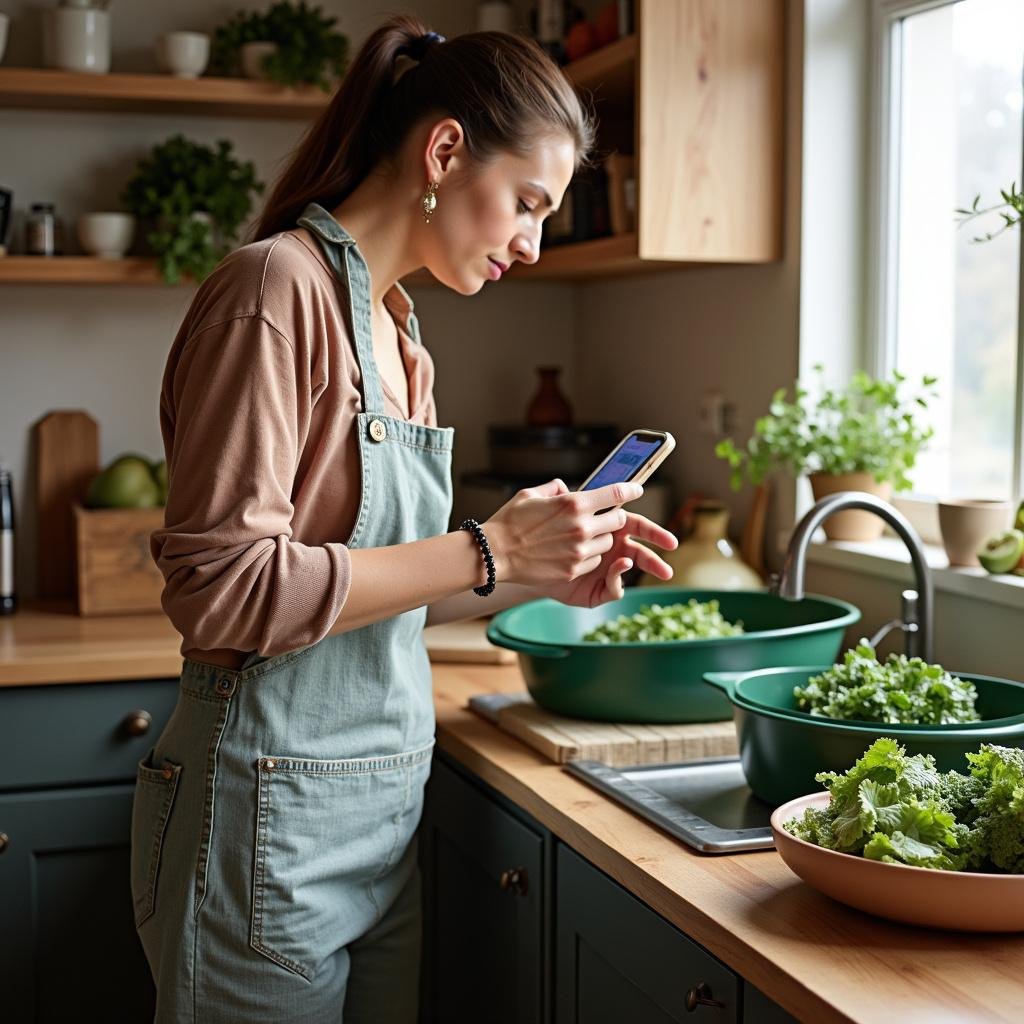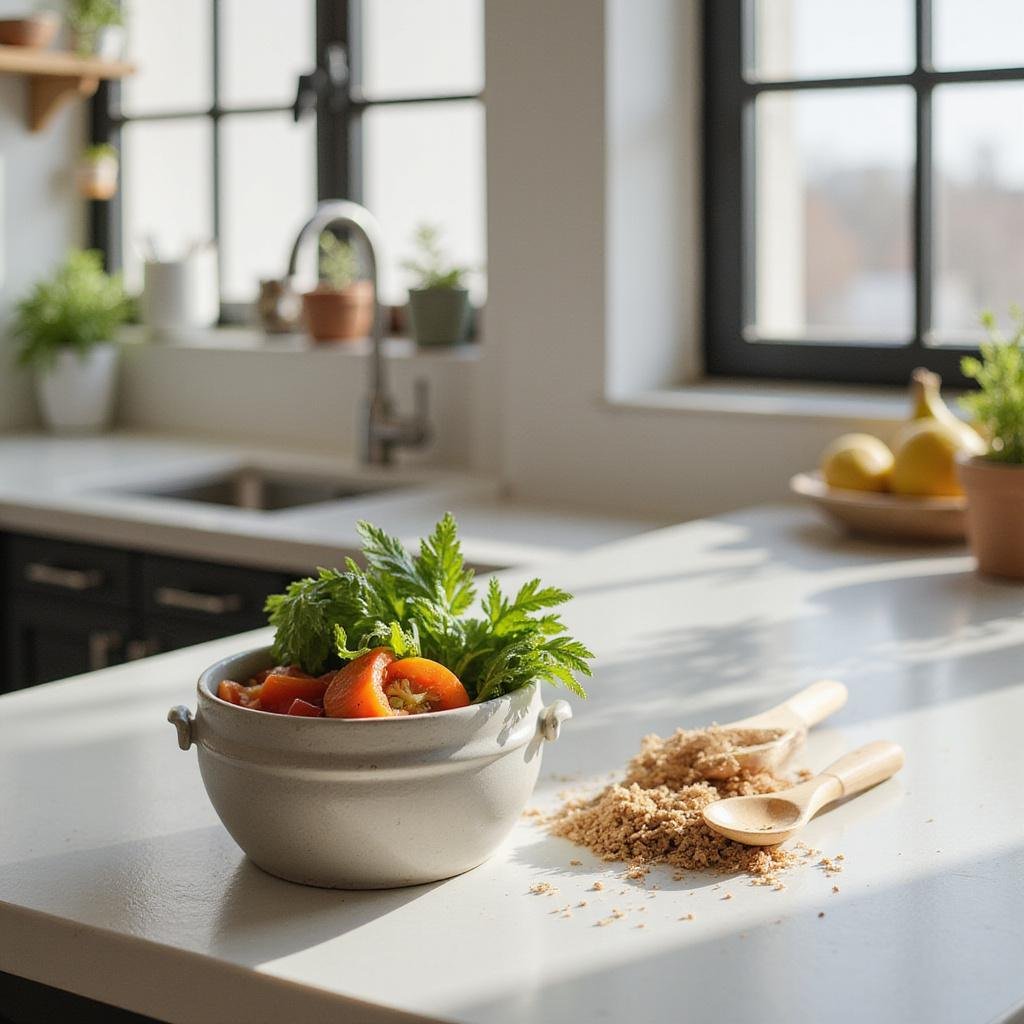1. Introduction
Embarking on a journey towards sustainable living often begins in the heart of your home — the kitchen. Implementing kitchen composting tips for beginners is an essential step for those looking to reduce waste, improve their eco-footprint, and contribute to environmental preservation. In this comprehensive guide, we will explore the best kw practices for kitchen composting, provide useful kw1 tips, and help you master this eco-friendly habit with ease. Utilizing innovative tools like the Fullstar Vegetable Chopper and Spiralizer can streamline your prep work, making composting more efficient and enjoyable.
2. Why Is Kitchen Composting Important?
Kitchen composting is a straightforward way to turn food scraps and organic waste into valuable compost that can enrich your garden soil. It reduces household waste, minimizes landfill contributions, and decreases greenhouse gas emissions. For beginners, adopting composting methods in the kitchen is an accessible and rewarding step toward sustainable living. Essential tools like the CAROTE Nonstick Pots and Pans set help manage waste and prep, making the entire process smoother and more manageable. Remember, using the best kw techniques, such as proper bin selection and waste management, is fundamental.

3. Essential Kitchen Composting Tips for Beginners
Getting started with kitchen composting can be simple if you follow these best kw tips. Whether you are just beginning or refining your approach, these kw1 strategies will help you succeed, especially when paired with tools like the Food Chopper & Spiralizer. Proper equipment and techniques are fundamental to making composting both effective and enjoyable.
Choose the Right Compost Bin
Select a compost bin that fits your kitchen space and lifestyle. Options include countertop compost containers, bokashi bins, or tumbling bins. Ensure it has proper ventilation and a secure lid to prevent odors and pests. Using the Home Essentials Nonstick Cookware Set for prep and containing waste is helpful. Applying the best kw techniques in choosing your bin can make the process more efficient and enjoyable.
Balance Green and Brown Waste
Maintain an optimal balance of green waste (food scraps, fresh plant material) and brown waste (paper towels, cardboard). This kw2 balance accelerates compost decomposition and prevents unpleasant smells. Remember, layering waste items properly, as suggested by the homemade kitchen scrub recipes, can significantly enhance your compost quality and kitchen hygiene.
Avoid Common Kitchen Composting Mistakes
- Adding meat or dairy: These items can attract pests and create odor issues.
- Overfilling the bin: Too much waste at once can slow down decomposition.
- Ignoring moisture levels: Keep your compost moist but not soggy for best kw outcomes.
4. How to Use Kitchen Waste Effectively in Composting
Utilizing your kitchen waste with the right kw1 techniques ensures healthy compost and successful gardening results. Chop larger scraps into smaller pieces to accelerate decomposition, and layer waste materials according to the best kw practices. Investing in versatile kitchen gadgets like the full-featured food chopper and spiralizer can assist you in preparing waste for composting, making the process more efficient. These steps promote efficient composting in your kitchen setup and ensure you get rich, nutrient-dense compost, which can be used to boost your garden’s health.
5. Benefits of Mastering Kitchen Composting Tips for Beginners
- Reduces waste sent to landfills
- Enriches garden soil naturally
- Supports sustainable living habits
- Saves money on fertilizer and waste disposal
- Creates a sense of eco-conscious community
6. Frequently Asked Questions about Kitchen Composting
What is the best kw for beginners starting kitchen composting?
The best kw for beginners is utilizing a simple countertop compost bin with a lid, paired with an understanding of balancing green and brown waste. Additionally, incorporating tools like the Food Chopper and Spiralizer makes preparing waste effortless, making initial composting manageable and less intimidating.
How do I prevent odors while composting in the kitchen?
Use airtight containers, avoid overfilling the bin, and incorporate brown waste like shredded paper or cardboard. Regularly turning or mixing the compost with a tool like the Ninja Mega Kitchen System blender helps control odors and speeds up decomposition.
Can I compost all kitchen scraps?
Not all scraps are suitable for kitchen composting. Avoid adding meat, dairy, oily foods, and diseased plant material. Focus on vegetable peels, fruit scraps, coffee grounds, and paper waste to get the kw1 results that benefit your garden the most. The right tools, such as the Cuisinart Bread Maker, can help process some of these materials efficiently.
7. Conclusion
Starting kitchen composting with the right kw tips can significantly impact your sustainability journey. By adopting the best kw practices, choosing appropriate composting tools, and maintaining a balanced approach, you can effortlessly transform kitchen waste into valuable compost. Remember, composting is a rewarding, eco-friendly habit that benefits both your garden and the planet. Begin today with the proper tools and techniques, and enjoy the many benefits of embracing kitchen composting tips for beginners.
For more eco-friendly kitchen practices, visit our natural cleaning recipes page, or explore essential kitchen gadgets to support your composting journey.


1 thought on “Kitchen Composting Tips for Beginners”